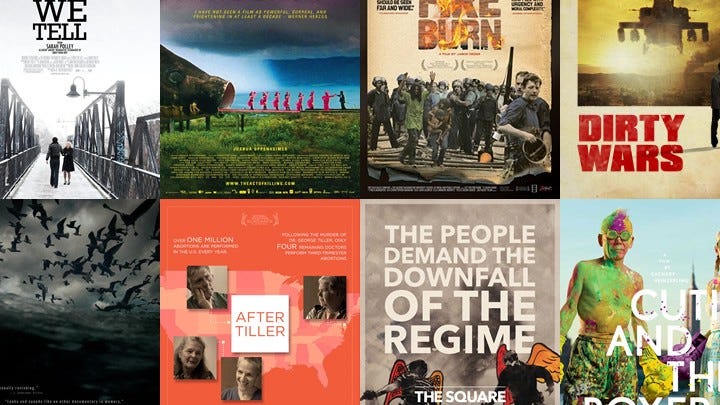The 13 Best Documentaries of 2013

What a year for nonfiction cinema. The power and the poetry and the perspective of documentaries in 2013 all reached groundbreaking levels. Films are changing minds, maybe some industries, perhaps even eventually some national histories. They’re illustrating imaginations and emotions and memories in ways that expand the mode beyond realism to points of …
Keep reading with a 7-day free trial
Subscribe to Nonfics to keep reading this post and get 7 days of free access to the full post archives.



